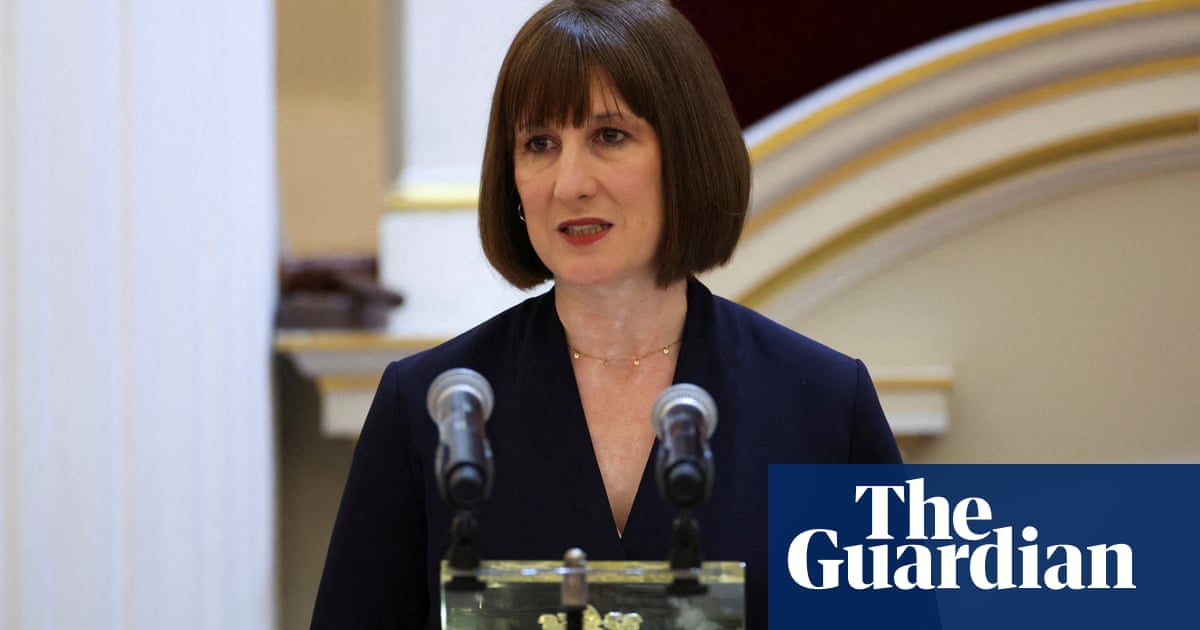Make Me a Mixtape (Radio 1) | BBC Sounds
16 Sunsets (Antica and Telltale Studios) | Global Player
Radio 3 Unwind | BBC Sounds
How to Play: Holst’s The Planets with the Royal College of Music and Sibelius Academy Orchestra (BBC Radio 4) | BBC Sounds
Ooh, a new season of one of the jolliest music podcasts out there. On Make Me a Mixtape, a celebrity invents a reason why they need a curated selection of songs, and hosts Clara Amfo and Jordan Stephens come up with a playlist of six tracks each. We hear a little bit of each song, along with Amfo and Stephens’s justifications, before the celeb chooses their winning tape. It’s a sort of soundclash.
after newsletter promotion

So, a fairly simple idea. Though somehow, in the first few minutes of last week’s episode, A Gym Hype Mixtape for Munya Chawawa, Amfo and Stephens don’t quite manage to explain what’s going on. This is mostly down to Stephens’s off-the-wall vibe; naturally funny and quick, he’s also chaotic and therefore slightly unclear. (there are a couple of extra elements to the show, such as an unnamed famous friend suggesting a track, but if you didn’t already understand that, you wouldn’t from the intro). Still, it’s all fun, even when actor Chawawa’s competitive male energy means that everything becomes more heightened. He wants a heavy-lifting workout playlist, but, he says, he can’t imagine Stephens knowing about this. “I imagine you do really aggressive pilates,” says Chawawa, resulting in a “how much do you bench” bro-off with Stephens that threatens to derail the whole affair.
Anyway. Don’t let any of that put you off, because this is a great show, and Stephens’s hectic approach is an essential ingredient. Amfo, who’s upbeat but more relaxed and immensely knowledgable about music (whenever anyone mentions any track, she knows it), has the chops to keep everything in line.
Still, there’s no accounting for taste: in the end, Chawawa chose Stephens’s playlist, though it was objectively worse. He had Turn Down for What and Barbie Girl! Amfo had Missy Elliott and Lethal Bizzle! Harrumph. You can hear the chosen playlist at the end of the show. Or you can hop over to a streaming service, cherrypick the tracks you’ve liked and start a nice big playlist of your own.

16 Sunsets was topping many listener charts last week, and it’s easy to see why. It’s a well-produced and researched story of Nasa’s space shuttle programme, from many of the team behind the BBC’s 13 Minutes to the Moon. 16 Sunsets crowdfunded itself into existence, but the essential components remain. Space expert Dr Kevin Fong presents. He’s clearly the right person to host this show, though I have a few quibbles about his presenting style; he has a tendency to go for the same cadence in every sentence, meaning you find your attention wandering, even in the opening minutes when we hear the countdown to launch. Still, once we get into the meat of the show, and interviews with those who worked at Nasa, you’re captured.
16 Sunsets is hardly an unfamiliar tale – Fong himself made a BBC documentary about the Nasa programme’s final flight 13 years ago – but the interviews are fresh, and the use of sound excellent, plus Christian Lundberg, from the Hans Zimmer composer collective, provides the score. As ever, I would like less of the “I’ve always loved space” buildup and, instead, a plunge straight into the story, but my patience for this-means-everything-to-me narration and, in truth, for space exploration in general is shorter than most people’s. You will undoubtedly enjoy this show.
After heavy negotiation between the BBC and Ofcom, Radio 3 has been allowed to launch a spin-off station, Radio 3 Unwind. Radio 2 wasn’t permitted to have its proposed spin-off, a station that would have focused on 50s, 60s and 70s music, because Ofcom thought it would devastate commercial rivals such as Boom Radio or the multitude of decade-specific radio stations from Global and Bauer. So I’m not quite sure why Unwind is OK, as it seems to heavily tread all over the long-established toes of Classic FM.

And, actually, having listened to R3U, I’m not quite sure why it was launched at all. It’s so polite! There’s no listener interaction at all – no callouts for texts or emails – and the few presenters there are, in the breakfast and teatime slots, seem to have been told to tone it down to zombie soporific. Less unwind, more undead. Perhaps it’s because Unwind is labelled as a 24/7 streaming service rather than an actual radio station. I listened to Edith Bowman’s weekday late afternoon show, Cinematic Soundtracks. She’s a movie-score expert, having interviewed umpteen composers and directors for her film and music podcast Soundtracking, so why is she reduced to a couple of sentences between tinkly piano tracks? Jonathan Ross, who hosts Classic FM’s film show on Friday and Saturday evenings, isn’t so muted; neither was Mark Kermode when he hosted a similar show on Scala. It seems daft to employ such a specialist host and then ask her to dampen down her enthusiasm and knowledge. Let Edith speak!
For an example of how classical music (any music) can be enlivened by expertise, try How to Play on Radio 4. Last week’s show, a repeat from September, featured student musicians and conductors talking about how they play Holst’s The Planets. (Music that, of course, has been used a lot in movies and on TV, from Space 1999 to Bluey.) “Lots of people confuse playing quietly with blowing less,” says a flautist. “You want to blow more – it’s the shape of the hole in your mouth. The aperture needs to be smaller… like pulling spaghetti out of your mouth.” See? Enlightening.

.png) 1 month ago
15
1 month ago
15













































